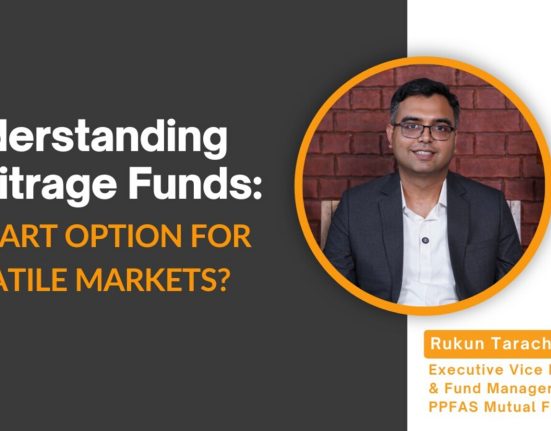Inflation and low interest rates has led many to explore safe alternatives to fixed deposits with high returns. Ramalingam Kalirajan lists 10 options that can generate returns better than a fixed deposit.

Illustration: Dominic Xavier/Rediff
Are you tired of watching your fixed deposit (FD) returns struggle to keep up with inflation?
With FD interest rates hovering around 5 to 7 per cent, many investors are looking for alternate investment options that offer higher returns without excessive risk.
If you’re one of them, you’re not alone! The fear of losing purchasing power due to inflation and low-interest rates has led many to explore safe alternatives to fixed deposits with high returns.
Indian households still allocate most of their assets to traditional investments. Property dominates with a 51.3% share, followed by gold (15.2%) and bank deposits (13.3%). Equities, despite their wealth-building potential, account for only 5.8%.
This over-reliance on FDs and low-return instruments slows down wealth accumulation, making it essential to explore alternatives to FD. If you are wondering where to invest money apart from FD, this article will help you identify the best options.
Let’s dive into 10 of the best alternatives to FDs, weighing their pros and cons so you can make an informed choice.
1. Savings Accounts in Small Finance Banks: Earn FD-Like Returns with Liquidity
Did you know some small finance banks offer savings accounts with interest rates as high as 7%? This makes them a great alternative for those who want FD-like returns with full liquidity.
Pros:
- High-interest rates, sometimes matching FDs
- Full liquidity — withdraw anytime
- Low risk, as deposits are insured up to Rs 5 lakh
Cons:
- Interest rates can fluctuate
- Some banks have minimum balance requirements
- May not consistently beat inflation
Why lock your money in an FD when you can earn almost the same returns with complete flexibility? If you’re looking for where to invest money apart from FD, this could be an option!
2. Corporate Fixed Deposits: Higher Returns Than Traditional FDs
Corporate FDs offer better interest rates than bank FDs but come with slightly higher risks.
Pros:
- Higher interest rates (up to 9%)
- Flexible tenures
Cons:
- Not insured like bank FDs
- Credit risk involved
- May not always beat inflation
Enjoy the benefits of FDs with a little extra boost! If you are searching for the best investment options instead of FD, corporate FDs can be a good pick.
3. Post Office Savings Schemes: Government-Backed Safety with Decent Returns
Post office schemes like NSC and PPF offer attractive interest rates and tax benefits.
Pros:
- Low risk, government-backed
- Tax benefits under Section 80C
Cons:
- Fixed tenure
- Limited liquidity
- Returns may not always keep pace with inflation
Safe, secure, and rewarding investments! These make excellent alternatives to FD for conservative investors.
4. Gold Investment: Why Gold Is a Timeless Investment
Gold has historically been a safe haven during economic uncertainties.
Pros:
- Hedge against inflation
- Easily liquidated
- Multiple investment options (physical gold, ETFs, sovereign gold bonds)
Cons:
- No passive income
- Storage and safety concerns (for physical gold)
Shine bright with gold investments! Looking for where to invest money apart from FD? Gold can be a strategic option.
5. Government Bonds & RBI Bonds: Safe & Secure Investments with Better Returns
Government bonds are low-risk, high-security investments that often offer better returns than FDs.
Pros:
- Backed by the government
- Interest rates usually higher than FDs
- Some bonds offer tax benefits
Cons:
- Lock-in periods may apply
- Interest rate fluctuations
- Long-term bonds may not always beat inflation
Sleep easy knowing your investment is government-backed! These bonds are among the safest alternatives to fixed deposits with high returns.
6. Peer-to-Peer (P2P) Lending: Earn High Returns by Lending Money
P2P lending platforms connect investors with borrowers, offering higher returns than FDs.
Pros:
- Potential for high returns (10-15%)
- Diversification across multiple borrowers
- Passive income stream
Cons:
- Credit risk — borrowers may default
- Not regulated as strictly as banks
- Higher risk compared to traditional investments
Be your own bank and earn higher returns! Another smart but riskier alternative to FD for those with a higher risk appetite.
7. Annuities: Secure Retirement Income with Fixed Payouts
Annuities provide a steady income stream, making them a great choice for retirees looking for financial stability.
Pros:
- Guaranteed regular income
- Low risk, ideal for retirees
- Customisable payout options (lifetime, fixed-term, etc.)
Cons:
- Low liquidity — funds are locked in
- May have high fees and lower returns than market investments
- Returns may not keep up with inflation
- You can’t encash the corpus even during extreme emergencies
Enjoy peace of mind with a guaranteed income for life! However, if liquidity is a priority, you may need to look for other alternatives to FD.
8. High Dividend-Yielding Stocks: Earn Regular Income with Reliable Stocks
Investing in high dividend-yielding stocks allows you to earn steady passive income while benefiting from capital appreciation.
Pros:
- Regular dividend payouts provide a stable income stream
- Potential for stock price appreciation over time
- Blue-chip stocks offer stability and reliability
Cons:
- Market fluctuations can impact stock prices
- Dividend payments are not guaranteed
- Requires market knowledge and monitoring
Invest smartly and get paid while you wait! This is among the best investment options instead of FD for equity investors.
9. FD + Equity Mutual Fund Combo: The Best of Both Worlds
If you’re a first-time investor, a smart way to enter equities is by keeping your principal safe in an FD and diverting only the interest to an equity mutual fund. This allows you to benefit from stock market growth while ensuring your capital remains untouched.
Pros:
- Principal remains safe in FD
- Equity exposure helps grow wealth over time
- Step-by-step entry into equity investing
- Can generate inflation-beating returns over time
Cons:
- Returns from equity mutual funds are market-linked
- Requires patience to see substantial gains
A perfect strategy for cautious investors looking to dip their toes into equity markets!
10. Systematic Withdrawal Plan (SWP) in Debt & Equity Funds: A Tax-Efficient Alternative to FD Interest
If you are investing in an FD for regular passive income, consider shifting to a Systematic Withdrawal Plan (SWP) using a combination of debt and equity funds. This approach offers better tax efficiency and the potential to beat inflation while providing steady cash flow.
Pros:
- More tax-efficient than FD interest
- Can generate inflation-beating returns
- Customisable withdrawal frequency
Cons:
- Market fluctuations may impact returns
- Requires careful fund selection and allocation
A smarter way to generate regular income while keeping your wealth growing!
Conclusion
Choosing the right alternative to FDs depends on your risk appetite and financial goals. If you prefer safety, government bonds and post office schemes may suit you.
However, if you’re looking for higher returns and tax efficiency, the FD + Equity MF combo and SWP strategy are excellent options that can help you beat inflation and grow your wealth over time.
- You can ask rediffGURU Ramalingam Kalirajan your questions HERE.
Ramalingam K, an MBA in Finance, is a Certified Financial Planner. He is the Director and Chief Financial Planner at holisticinvestment, a leading financial planning and wealth management company.
Disclaimer: This article is meant for information purposes only. This article and information do not constitute a distribution, an endorsement, an investment advice, an offer to buy or sell or the solicitation of an offer to buy or sell any securities/schemes or any other financial products/investment products mentioned in this article to influence the opinion or behaviour of the investors/recipients.
Any use of the information/any investment and investment related decisions of the investors/recipients are at their sole discretion and risk. Any advice herein is made on a general basis and does not take into account the specific investment objectives of the specific person or group of persons. Opinions expressed herein are subject to change without notice.








